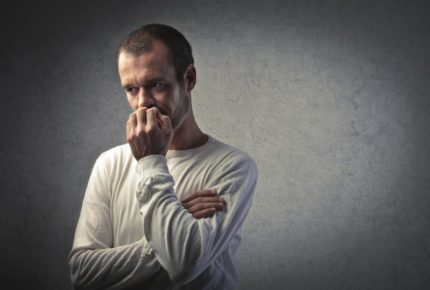

Making indecent images is a profoundly serious crime, and being accused of it can have lasting effects on your reputation, relationships, and future prospects. The legal process can seem bewildering, and the potential penalties are often severe. If you or someone you know is under investigation for making indecent images, you may be searching for clarity about what this offence involves, what sentences are possible, and whether a suspended sentence could be a realistic outcome. This article explains the law, outlines the sentencing process, and offers practical advice to help you navigate this challenging situation.
What is the offence of making indecent images?
In UK law, “making” indecent images of children is a specific criminal offence, primarily prosecuted under the Protection of Children Act 1978 and the Criminal Justice Act 1988. The term “making” can be misleading, as it does not only refer to creating original photographs or videos. Instead, it covers a wide range of activities, including downloading, saving, or even opening indecent images on a device. Essentially, if you cause an indecent image to exist on your computer, phone, or any other storage medium, you may be considered to have “made” that image in the eyes of the law.
This broad definition means that even if you did not take the original photograph or video, you could still be charged with making indecent images if you download, store, or otherwise create a copy of such material. The law is designed to prevent the circulation and proliferation of indecent images of children, recognising that every download or save contributes to the ongoing exploitation of victims.
Indecent images are categorised by severity:
- Category A includes the most serious material (such as penetrative sexual activity)
- Category B covers non-penetrative sexual activity
- Category C includes other indecent images not falling into the first two categories.
The number and category of images involved will significantly influence how the offence is viewed and sentenced.
What are the typical sentences for making indecent images offences?
Sentences for making indecent images can vary widely, depending on the circumstances of the case. The courts treat these offences with the utmost gravity, particularly when large numbers of images are involved or when the material is of the most serious categories. For the most severe cases, custodial sentences of up to ten years are possible, and offenders are almost always required to sign the Sex Offenders Register and may be subject to Sexual Harm Prevention Orders.
Judges consider a range of factors, including the number and category of images, the intent behind the making, any evidence of distribution or sharing, and the personal circumstances of the accused. Further, not every conviction results in immediate imprisonment. Depending on the facts of the case, the court may impose a community order, a suspended sentence, or a financial penalty. The outcome will depend on the specifics of the offence and the background of the defendant.
What is a suspended sentence?
A suspended sentence is essentially a prison sentence that isn’t put into effect right away. Instead of going straight to jail, the convicted individual gets to stay in the community for a set period, typically between six months and two years. During this time, they must follow specific rules set by the court. These rules can vary widely. They might include things like attending rehabilitation programs, participating in counseling, performing unpaid work, or adhering to restrictions, such as limits on internet use.
If the person sticks to all the conditions and doesn’t commit any more crimes during the suspension period, they won’t have to serve the prison sentence. It’s effectively wiped clean. However, if they break any of the conditions or are convicted of another offense during that time, the original prison sentence can be activated. This means they’ll likely be sent to prison to serve that initial sentence.
Suspended sentences are designed to give offenders a chance to address the root causes of their criminal behavior while still holding them accountable.
Is a suspended sentence possible for making indecent images offences?
Yes, it is possible for a court to impose a suspended sentence in cases involving making indecent images, but as ever, it depends on the circumstances. The judge will consider the seriousness of the offence, the defendant’s personal history, and their prospects for rehabilitation. If the court is satisfied that immediate imprisonment is not necessary and that the individual is unlikely to reoffend, a suspended sentence may be granted.
For example, if the defendant’s involvement was limited, they have no previous convictions, and they have shown genuine remorse, the court may be more inclined to suspend the sentence. On the other hand, if the making involved a large number of serious images, evidence of sharing, or aggravating factors such as attempts to conceal the material, the likelihood of a suspended sentence decreases.
What factors influence the court’s decision on a suspended sentence for making indecent images?
In deciding whether to suspend a custodial sentence in cases involving making indecent images, the court will consider a range of factors:
- The number and category of images: Was the offence limited to a small number of lower-category images, or did it involve hundreds or thousands of the most serious kind?
- Role and responsibility: Was the individual the main instigator, a passive recipient, or someone who played a more significant role in the creation or distribution of the images?
- Abuse of trust: Did the offender exploit a position of trust, such as working with children or having access to vulnerable individuals?
- Impact on victims: Did the making of images contribute to the ongoing exploitation of children, or was there evidence of direct harm to specific individuals?
- Personal circumstances: Factors such as age, health, family responsibilities, and previous criminal record are all relevant.
- Remorse and rehabilitation: Has the individual admitted their wrongdoing, apologised, or taken steps to address the underlying issues, such as seeking counselling or therapy?
- Risk of reoffending: Is there evidence that the individual is likely to commit similar offences in the future?
Mitigating factors can increase the likelihood of a suspended sentence; these often include genuine remorse, actively cooperating with authorities, or taking significant steps to address underlying issues like addiction or mental health problems. Conversely, aggravating factors can make a suspended sentence less probable, such as a history of repeated offending, attempts to conceal the misconduct, or, particularly in certain cases, the possession of images involving very young or vulnerable victims.
How serious does making indecent images have to be for a prison sentence?
Prison sentences for making indecent images are typically reserved for the most serious cases, particularly those that cause substantial harm or involve aggravating circumstances. Several factors significantly increase the likelihood of a custodial sentence:
- Large quantities of images: The more illegal images involved, especially those in the most severe categories, the higher the chance of imprisonment. Cases with thousands of images are treated with extreme seriousness.
- Distribution or sharing: Offenses involving the sharing or distribution of indecent images, whether to others or online, are viewed very gravely by the courts.
- Deliberate and repeated offending: Cases showing ongoing, intentional searches for illegal material or repeat offenses over time indicate greater culpability and premeditation.
- Previous convictions: A history of similar or other sexual offenses demonstrates a behavioral pattern and substantially raises the probability of a prison sentence.
- Abuse of trust or authority: Offenders who leverage their position, especially those in roles of responsibility or trust, to access or create indecent images are likely to face harsher penalties.
Courts also consider the overall impact of the offense, including the harm inflicted upon the victims in the images and the broader societal damage from such material circulating.
How can I improve my chances of receiving a suspended sentence for making indecent images offences?
- Get legal advice: An experienced solicitor can help you understand the charges, build a robust defence, and present your case in the best possible light.
- Take responsibility and show remorse: Courts are more likely to be lenient if you acknowledge your wrongdoing and express genuine regret.
- Engage in rehabilitation: Attending counselling or therapy, particularly programmes focused on addressing the underlying issues related to the offence, can demonstrate a commitment to change.
- Gather character references: Letters from employers, community leaders, or family members can help show that the offence was out of character and that you have strong support networks.
- Show evidence of positive change: If you have taken steps to address problematic behaviour, such as voluntarily restricting your internet use or participating in support groups, this can help persuade the court that you are unlikely to reoffend.
Where to get more help
Facing criminal charges for making indecent images is incredibly daunting, especially due to the sensitive nature of the allegations and the serious potential consequences. If you or someone you care about is in this situation, early intervention can significantly impact the outcome. Get in touch with the expert team at Stuart Miller Solicitors today for advice on next steps and to begin building your defence.
OUR COMMITMENTS TO YOU:
-
Responsive
A legal expert will consult you within 24 hours of making an enquiry.
-
Empathetic
We will always treat you with trust, understanding and respect.
-
Specialised
Your case will be handled by an expert who specialises in your type of offence.
-
Proactive
We will take early action to end proceedings as soon as it is practically and legally possible to do so.
-
Engaged
You will be kept updated on your case at all times. We will provide a named contact available to answer your questions.
-
Caring
We understand this is a difficult and stressful time for you and your family. Our team will support you every step of the way.
-
Tenacious
We will never give up on your case. We fight tirelessly to get you the best possible outcome.

